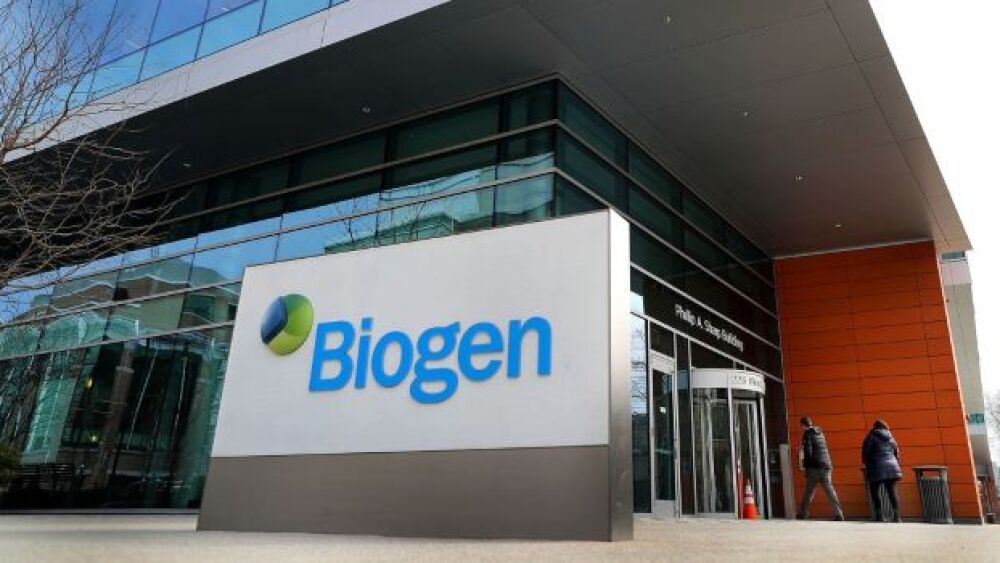Biogen is going all-in on a stroke drug it has been developing for the past three years in collaboration with Japan-based TMS Co.
John Tlumacki/The Boston Globe via Getty Images
Biogen is going all-in on a stroke drug it has been developing for the past three years in collaboration with Japan-based TMS Co. This morning, Biogen said it exercised its option to acquire TMS-007 following positive Phase IIa studies that showed the drug had positive impacts on stroke symptoms.
Biogen said TMS-007, a plasminogen activator associated with the breakdown of blood clots, has the potential to be a next-generation thrombolytic medication that can extend the therapeutic window following onset of a stroke, all with an improved benefit-risk profile. Current thrombolytic agents approved for use in acute ischemic stroke are limited in their use due to their benefit-risk profile in later time windows. Biogen and TMS first partnered on the development of TMS-007 in 2018.
Stroke is the second leading cause of death worldwide. Caused by blockages of blood supply to the brain, acute ischemic stroke accounts for about 85% of all strokes. There are no approved medical therapies for treatment beyond the 3 to 4.5-hour time window.
Phase IIa data demonstrated TMS-007 positively impacted blood vessel reopening and patient functional recovery with no incidence of symptomatic intracranial hemorrhage, a common risk with thrombolytic agents.
Patients in the study were dosed up to 12 hours following the onset of stroke symptoms, well beyond the current timeline of 3 to 4.5 hours for approved thrombolytic agents. The average time to treatment was 9.5 hours for patients who received TMS-007 and 9.3 hours for those who received placebo, Biogen said.
TMS-007 also demonstrated a significant improvement on the secondary endpoint of functional independence at 90 days in the Phase IIa study. Data shows 40% of patients who received TMS-007 achieving scores of 0 or 1 on the modified Rankin Scale, which is a measure of independence in daily living. That means there were no residual symptoms nor significant disability. Only 18% of patients who received a placebo saw that kind of result.
Biogen is evaluating the next steps for the clinical development of TMS-007, including plans for global studies. Final data results from the Phase IIa study are expected to be presented at a future scientific forum.
Alfred Sandrock Jr., Biogen’s head of research and development, said the company was encouraged by the Phase IIa data and decided to pull the trigger on its option.
“It has been almost 25 years since the last thrombolytic agent was approved for acute ischemic stroke and we believe this novel investigational drug may expand the number of eligible patients who could potentially receive thrombolytic therapy and thus have a higher chance of functional independence after stroke,” Sandrock said in a statement.
TMS-007 complements Biogen’s Phase III stroke asset, intravenous glyburide, which it acquired in 2017 from Remedy Pharmaceuticals. The company had been assessing multiple sclerosis drug Tysabri as a potential treatment for acute ischemic stroke but halted that I 2018 after insufficient clinical data.
Under terms of the deal, Biogen will make a one-time payment of $18 million to TMS, in addition to potential regulatory and commercial milestones and royalties. When the two companies initially partnered in 2018, Biogen provided TMS with a $4 million upfront payment. TMS could receive up to $335 million under the terms of the contract.





